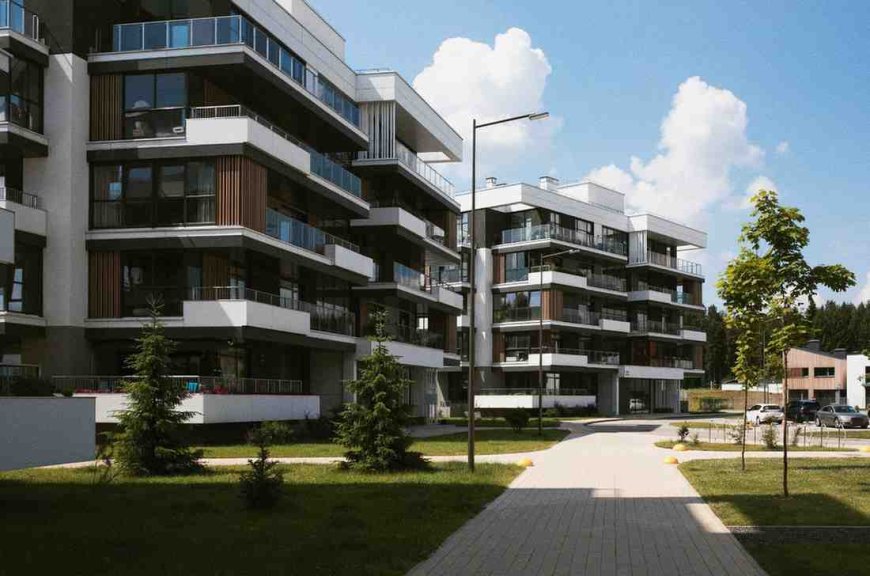Should You Flip Houses or Rent Them for Cash Flow?
Explore the pros and cons of house flipping versus renting for cash flow. Discover which real estate investment strategy aligns best with your financial goals.

Real estate has long been a favored path to building wealth. Two of the most common strategies in this field are house flipping and rental investing. But which one is right for youflipping houses for short-term profit, or renting properties for long-term cash flow?
Each approach has its own risks, rewards, and financial implications. Your decision should be based on your goals, risk tolerance, time commitment, and capital availability. In this blog post, well compare both options and help you make a more informed investment decision.
Understanding House Flipping
House flipping involves buying a property, renovating it quickly, and selling it for a profit. Investors typically look for undervalued homes in good locations that need cosmetic or structural updates.
Pros of House Flipping
-
Quick Profits: One of the main attractions of flipping is the potential for fast returns. Successful flips can bring profit within a few months.
-
Short-Term Commitment: You dont need to manage a property long-term. Once its sold, you're free to move on.
-
High ROI Potential: With the right property and improvements, you can make a substantial return on investment in a relatively short period.
Cons of House Flipping
-
High Risk: Costs can spiral due to unexpected repairs, market fluctuations, or delays in construction.
-
Time-Intensive: Flipping requires constant oversight. Youll likely work with contractors, manage renovations, and make fast decisions.
-
Tax Implications: Profits from flips may be subject to higher short-term capital gains taxes.
Understanding Rental Properties for Cash Flow
Rental investing means buying a property and leasing it to tenants. It offers consistent income and long-term wealth accumulation.
Pros of Renting for Cash Flow
-
Monthly Income: Renting provides steady, recurring cash flow, which can help cover mortgage payments and generate surplus income.
-
Long-Term Appreciation: Over time, the propertys value may increase, allowing for equity growth and wealth accumulation.
-
Tax Advantages: Investors may benefit from deductions like mortgage interest, depreciation, and maintenance costs.
-
Passive Income: Once a property is stabilized and well-managed, it can become a relatively passive investment.
Cons of Renting for Cash Flow
-
Management Required: Dealing with tenants, repairs, and vacancies can be stressful and time-consuming unless you hire a property manager.
-
Slow Returns: Building wealth through rentals takes time, and you might not see substantial returns for several years.
-
Market Dependence: Rental income can be affected by economic downturns, local job markets, and housing demand.
Comparing Upfront Capital Requirements
-
Flipping: Requires significant upfront capital for both purchase and renovation. Youll need a larger initial budget to complete projects effectively.
-
Renting: You can often use financing (like mortgages) to acquire rental properties with less upfront cash, though youll need reserves for maintenance and vacancy coverage.
Time Commitment and Involvement
-
Flipping: Demands intense short-term involvement. You must oversee the renovation process, inspections, and selling process within a tight window.
-
Renting: Involves long-term commitment. While daily involvement is lower once the property is rented, long-term responsibilities like maintenance and tenant management persist.
Risk vs. Stability
-
Flipping: High-risk, high-reward. A wrong purchase, poor renovation estimate, or market shift can lead to losses.
-
Renting: Lower risk, more stable. Monthly income can help buffer against downturns, and holding long-term allows for market recovery.
Return on Investment (ROI) Considerations
-
Flipping: ROI is measured per project. A successful flip might yield 1530% or more, but there's a ceiling since you're not holding the asset.
-
Renting: ROI includes both monthly income and property appreciation. The returns might appear slower but can be more substantial over decades.
What Type of Investor Are You?
Your personality and goals play a big role in which strategy fits you best.
-
Choose Flipping If:
-
You enjoy fast-paced projects and hands-on work.
-
Youre okay with higher risk for the potential of higher short-term gains.
-
You have access to capital and a good contractor network.
-
-
Choose Renting If:
-
You want long-term income and financial stability.
-
You prefer building wealth gradually and passively.
-
Youre interested in owning assets that increase in value over time.
-
Hybrid Strategy: Do Both?
Some investors find success using both strategies. For example, they flip a few properties to build capital and then reinvest that money into rental properties for steady income. This combination approach allows for short-term gains while building long-term wealth.
Final Thoughts
Flipping houses and renting properties each offer distinct paths to financial success. If you prefer quicker, more active returns and are willing to take on risk, flipping may suit you. If you want to generate consistent income and grow wealth steadily over time, renting for cash flow is likely a better match.
Ultimately, your decision should reflect your financial goals, risk tolerance, and personal interests. Many successful real estate investors start with one and eventually diversify into the other as they gain experience and resources.
Important Links
Meet the Visionaries Behind the Project: Dunearn Road Condo Developer
Your Complete Guide to Dunearn Road Condo Project Details
Unveiling the Prime Appeal of the Dunearn Road Condo Location
Discover the Charm of Dunearn Road New Condo
Dunearn Road Condo Pricing: A Strategic Investment in Prime District 11
Dunearn Road Condo Project Details
Dunearn Road Condo Floor Plans
Dunearn Road Condo Floor Plans








































